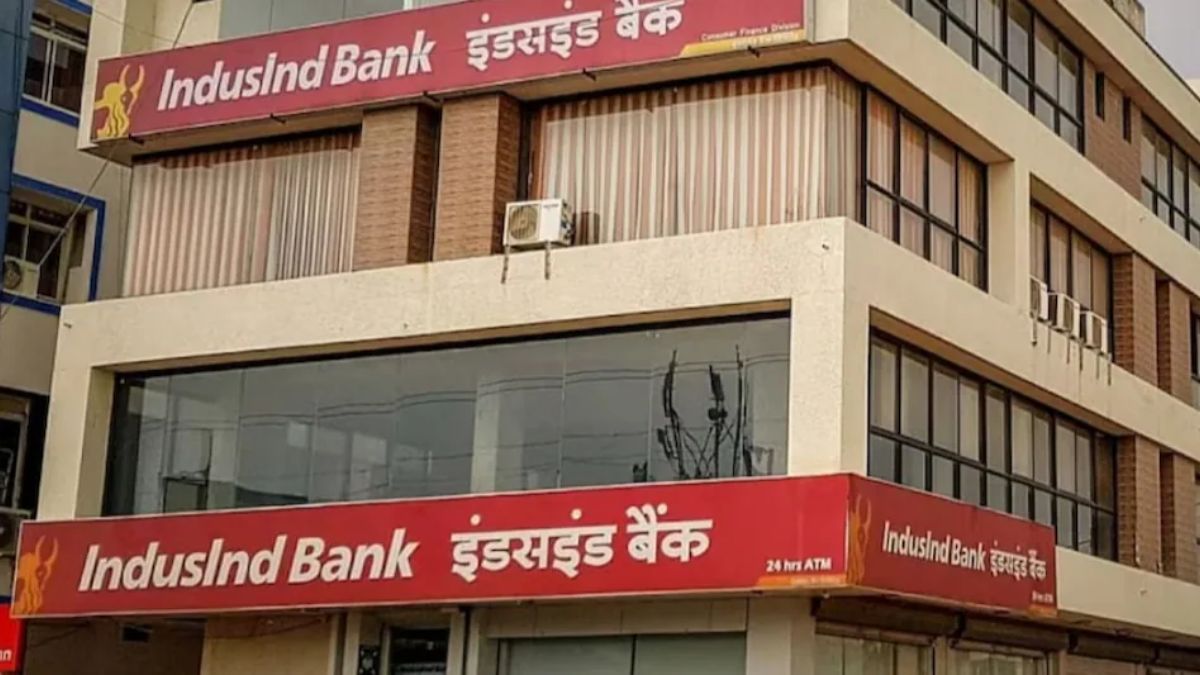Shares of IndusInd Bank (NSE: INDUSINDBK) dropped 4.25% to ₹896.95, hitting a 52-week low of ₹881.10, after the RBI approved only a one-year extension for CEO Sumant Kathpalia, instead of the three-year tenure sought by the company. The stock opened at ₹895.00, reached an intraday high of ₹902.65, but fell sharply amid concerns over leadership uncertainty.
Brokerages cut targets, cite leadership risk
UBS downgraded IndusInd Bank to ‘sell’ with a target price of ₹850, citing regulatory uncertainty due to the short CEO tenure. The brokerage believes this shift in focus to compliance issues will negatively impact near-term earnings and has cut FY26/27 EPS estimates by approximately 10.5%. It also expects the lack of strategic direction to lead to further de-rating.
BoFA Securities also downgraded the stock to ‘underperform’ with a target price of ₹850, highlighting concerns over leadership clarity, which could take 12-18 months to resolve. The brokerage has cut its target valuation by 30%, stating that a stock re-rating is unlikely until management stability is achieved.
Jefferies, while maintaining a ‘buy’ rating, reduced its target price to ₹1,080. The brokerage believes the one-year extension could push IndusInd Bank to initiate a succession process soon. It expects the bank to present at least two candidates for the CEO role, with Deputy CEO & CFO Arun Khurana as a potential internal frontrunner. Jefferies also noted that the stock is likely to remain rangebound until stability is restored in the microfinance and auto loan segments.
Macquarie retained an ‘outperform’ rating with a target price of ₹1,210 but acknowledged that the short CEO tenure creates medium-term uncertainty. The brokerage suggested that if a new CEO is appointed after this period, there is a possibility they could come from a PSU banking background, which may impact the bank’s strategic direction. Macquarie also noted past cases, such as Federal Bank, where an initial one-year extension was followed by a three-year term, but considers such an outcome unlikely for IndusInd Bank.
Goldman Sachs maintained a ‘neutral’ stance with a target price of ₹964, stating that investor focus will now shift to the bank’s operational performance. The brokerage raised concerns over slowing revenue growth in core business segments like commercial vehicle loans, rising delinquencies in microfinance, CVs, and tractor loans, and weak operating profitability due to margin moderation.
Citi remained optimistic on the stock, maintaining a ‘buy’ rating with a target price of ₹1,378. The brokerage believes the RBI’s move signals discomfort with the current leadership but notes that the Board had only proposed one candidate for approval, implying the regulator may want more options. Citi emphasized that key investor concerns now revolve around who will lead the bank next and what strategic direction it will take.
Nuvama kept a ‘hold’ rating with a target price of ₹1,115, stating that IndusInd Bank is likely to use the one-year period to transition to a new CEO. Given the RBI’s preference for external candidates in recent banking appointments, Nuvama expects a high probability of an external hire. It also warned that near-term earnings visibility is already impacted by weakness in the microfinance cycle and that stock pressure may continue due to low clarity on Q4FY25 earnings and management succession plans.
Disclaimer: The views and investment recommendations in this article are sourced from brokerage reports and market data. Business Upturn does not provide investment advice. Readers should consult financial experts before making any investment decisions.


